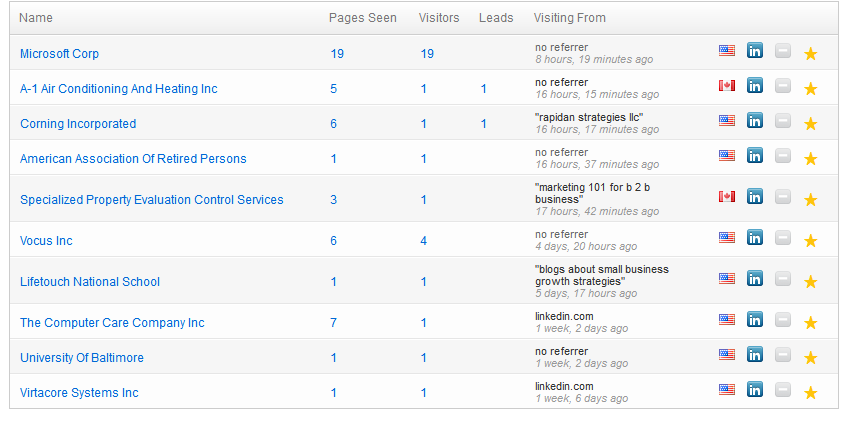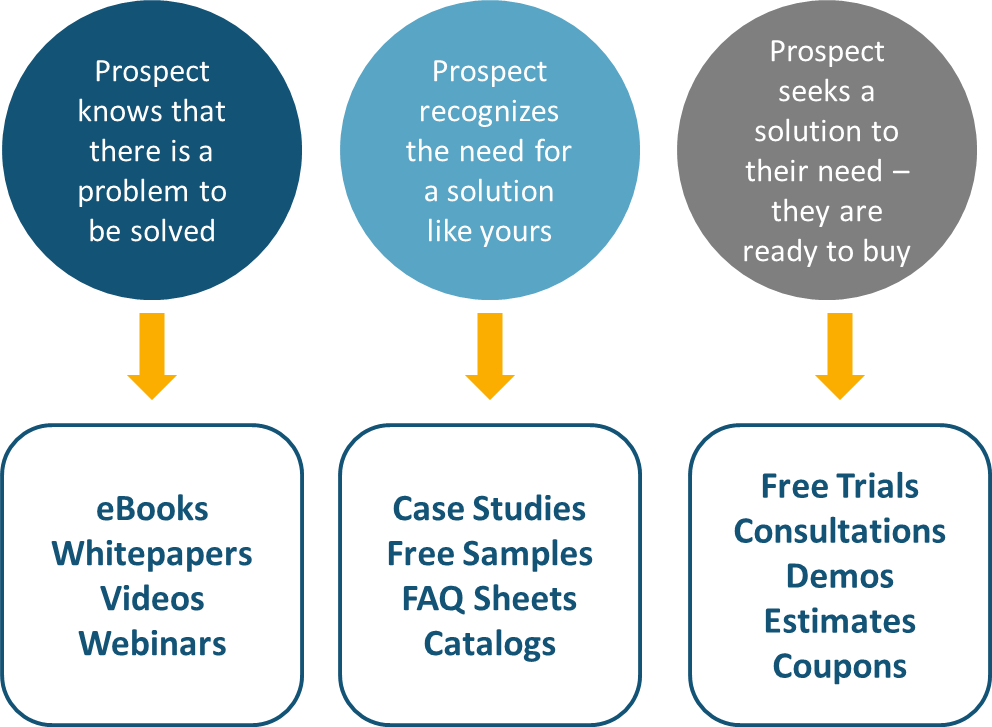 Leads are the lifeblood of any companys revenue generation process. Simply put, if youre not generating leads, youre not generating sales. Research shows that most leads arent ready to buy at their first interaction with your company. Your success in converting leads to sales-ready leads and eventually sales is dependent on how well you manage and nurture them through the buying process. The reality of todays buying process is that most leads have narrowed down their choices to a few potential vendors before they ever speak with a salesperson. Your success in generating revenue is dependent on how well you manage leads from their first visit to your website to their satisfaction with your products or services after they become a customer. Here are four best practices to optimize your lead management process to generate revenue:
Leads are the lifeblood of any companys revenue generation process. Simply put, if youre not generating leads, youre not generating sales. Research shows that most leads arent ready to buy at their first interaction with your company. Your success in converting leads to sales-ready leads and eventually sales is dependent on how well you manage and nurture them through the buying process. The reality of todays buying process is that most leads have narrowed down their choices to a few potential vendors before they ever speak with a salesperson. Your success in generating revenue is dependent on how well you manage leads from their first visit to your website to their satisfaction with your products or services after they become a customer. Here are four best practices to optimize your lead management process to generate revenue:
Prospect Intelligence
Most small business marketing automation software tracks the IP addresses of website visitors before they identify themselves as a lead by completing a form on your website to download a content offer. Heres a screenshot from HubSpots marketing automation software detailing prospect intelligence:

There is a wealth of information to be gathered from the prospect intelligence tool:
- What companies are visiting your website
- How they found your website: social media? search engine?
- Granular data on the visit: which social media site referred them? which search engine query brought them to your website? which pages did they visit while on your website?
All of this data can be used to optimize your marketing efforts to increase web traffic.
Lead Intelligence
A web visitor becomes a lead by providing contact information (usually an e-mail address) in order to receive a premium content offer like an eBook or webinar. Marketing automation software identifies the leads activity prior to becoming a lead by matching the IP address and incorporates that data into the lead record. Analyzing the data associated with your leads provides insight into the quality of the lead and the problems facing the lead. Some of the intelligence gathered includes:
- What company is the lead from and what level of purchasing authority does the lead have? Some of this information will come directly from the lead tool and other data can be obtained by researching social media profiles. For example, if the lead did not provide a title when downloading your content, you can access their LinkedIn profile to learn more about their role within the company.
- Which web pages did the lead view? This gives you insight into the potential problems the lead may be trying to solve.
- What content offers did the lead access? This will help identify which problems they may be trying to solve.
- How many and which web pages did the lead access? Has the lead made return visits to your website? This information helps you determine the leads level of engagement.
Lead intelligence lets you tailor future interactions with the lead to enhance their experience with your company and position you as a trusted advisor.
Lead Scoring
Lead Scoring is the process of determining if the lead is ready for sales interaction based on the following factors:
- How closely does the lead match your Ideal Customer Profile? If youre focusing on mid-sized technology companies, a software company in your target geographic area would score highly.
- What level of engagement does the lead have with your company? Assigning point values based on engagement helps you understand how far along the lead is in their buying process. For example, you might assign a score of 10 points for an eBook download and a score of 30 points for a request for a free consultation. The rationale is that someone who requests a consultation is likely further along in their buying process than the person who downloaded the eBook.
- What level of buying authority does the lead have? A Chief Technology Officer would be assigned a higher score than a software analyst for a company selling software.
Once you have assigned point values for the elements discussed above, the best practice is to work with your sales team to determine what point level equates to a sales-ready lead. When a lead is identified as sales ready, it is passed to the sales team to pursue. By implementing an accurate lead scoring system, you dont harass people who arent ready to buy and you maximize the efficiency of your sales team by passing along leads that are well into their decision-making process. Keep in mind that lead scoring is never perfect and that you should always be adjusting your lead scoring based on data analysis.
Lead Nurturing
As stated earlier in this blog post, most leads are not ready to buy at their first interaction with your website. Lead nurturing is the process of using e-mail marketing to provide buyers with the right content as they move through their purchasing process. Simply stated, lead nurturing mirrors your selling process with the buyer's decision making process. Here is a description of the types of content that is appropriate at different stages of the buying process:

Lead nurturing is a topic that will be covered in detail in a future blog post. For purposes of this discussion, the best practice for lead management is to sketch out the stages that buyers of your products or services go through and determine the best types of content to help them progress through their buying decision. A well-structured lead nurturing program will position your company as a trusted advisor and increase your chances for success as the buyer formulates their purchasing decision.
Follow these 4 lead management best practices and you will be much more efficient in your revenue generation efforts. Rather than taking a scattered approach to revenue generation, lead management will let you focus your efforts and maximize the efficiency of your limited revenue generation resources.









